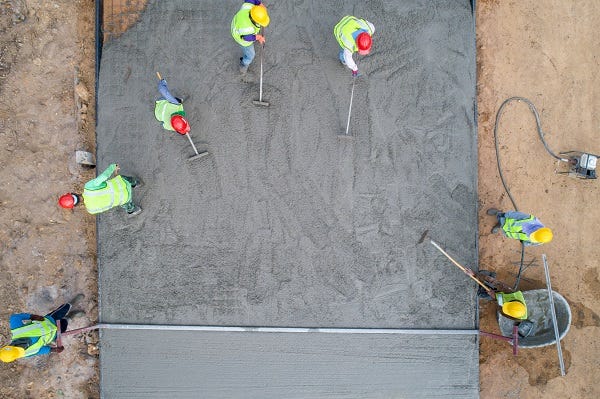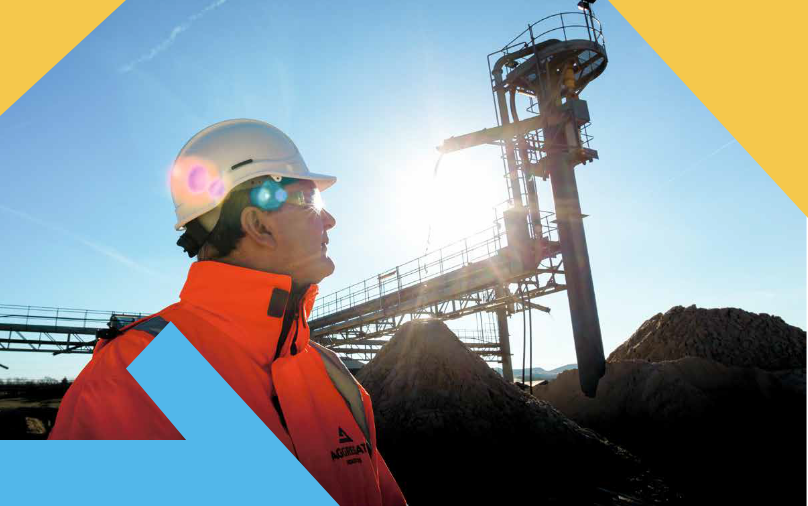What's the Difference Between Cement and Concrete?
This article aims to demystify these everyday materials, providing clarity on what exactly sets cement and concrete apart.
Concrete Vs Cement
In construction, certain terms often get tossed around interchangeably, leading to a bit of confusion. Two of the most common culprits are 'cement' and 'concrete'. So, if you’ve ever found yourself wondering ‘what’s the difference between cement and concrete’, you’re in the right place.
While they might seem like synonyms to the uninitiated, there's a world of difference between them. So, let's dive straight in and untangle these terms.
Breaking down the basics
Before we get into the nitty-gritty, let's establish the basic definitions. Cement, often known as Portland cement, is a fine, usually grey powder made from limestone and clay. It's a binder, a substance that sets and hardens, and can bind other materials together. It's used in various construction applications, but most importantly for this discussion, it's a key ingredient in concrete.
Concrete, on the other hand, is a mixture of cement, water and aggregates (like sand, gravel or crushed stone). When these ingredients are mixed together, they form a paste that gradually hardens into a sturdy and durable material. In essence, if you think of concrete as a fruitcake, cement would be the flour that holds everything together.
The key differences
Now that we've got the basics down, let's delve a little deeper into what differentiates cement from concrete.
Ingredients and composition
While cement is a component of concrete, it's just one part of the mix. The strength and durability of concrete come from the combination of cement with water and aggregates. The cement and water form a paste that coats the aggregates, and as the cement hydrates (reacts with the water), it forms a hardened mass. This is concrete.
Uses in construction
Another significant difference between concrete and cement lies in their uses. Cement's adhesive properties make it a useful ingredient in concrete and mortar (another building material made from cement, water and sand). But on its own, cement is more susceptible to cracking and isn't typically used as a stand-alone building material.
On the flip side, concrete’s strength and durability make it a go-to material for a wide range of construction projects, from pavements and bridges to skyscrapers and dams. It's versatile, relatively easy to work with and can withstand considerable weight and weather conditions, which is why it's one of the most widely used construction materials in the world.
Curing process
The curing process is another area where cement and concrete differ. Cement requires a relatively short curing period (the time required for the cement to reach its desired strength). Once mixed with water, it hardens quickly, often within a few hours.
Concrete, however, needs a much longer curing time. While it starts hardening as soon as the water is added, it can take several weeks to reach its maximum strength. During this period, the concrete needs to be kept moist to ensure it doesn't dry out and crack. This long curing process is one reason why concrete is such a strong and durable material.
Conclusion
So, there you have it, the answer to your question: "What's the difference between concrete and cement?” While the two are often used interchangeably in everyday conversation, they are indeed different.
Cement is a fine, binding powder and a crucial ingredient in making concrete, while concrete is a robust and versatile building material made from a mix of cement, water and aggregates. Understanding these differences not only helps clarify construction jargon but also underscores the fascinating complexity of the materials that shape our built environment.
Cement - is an ingredient of concrete


Concrete - contains cement


Frequently Asked Questions
We're here to help
Got questions?
Try our frequently asked questions, how to guides and technical support for specialist advice.
Live chat is here!
Need a quick answer? Why not reach out to our expert teams in your area.
Talk to us
We would love to hear from you! Send us an email for further support, feedback or guidance.





